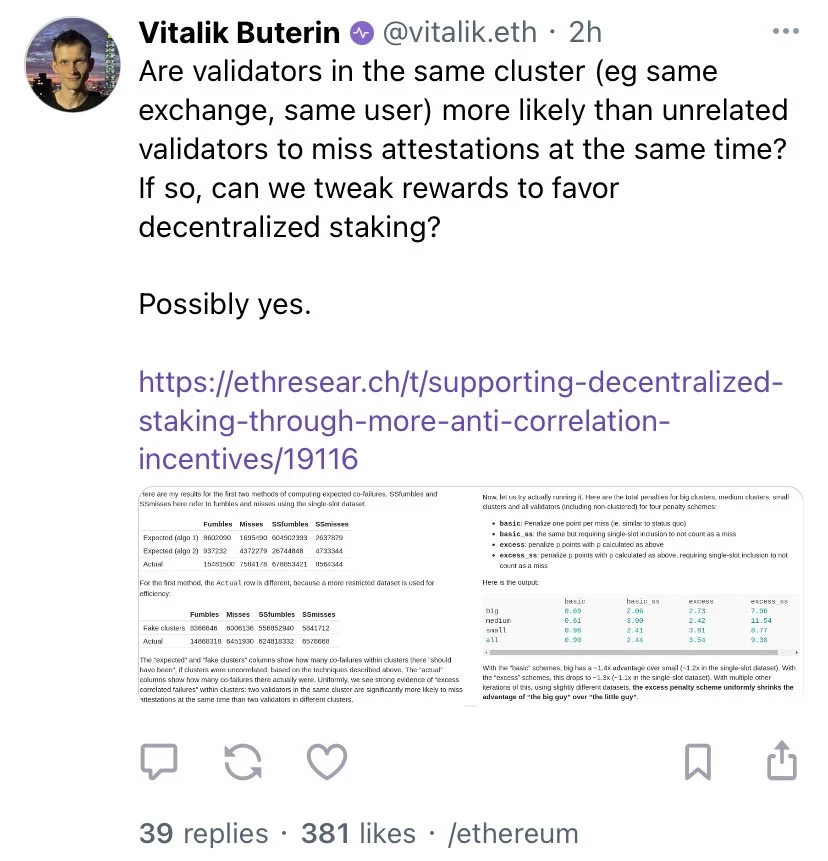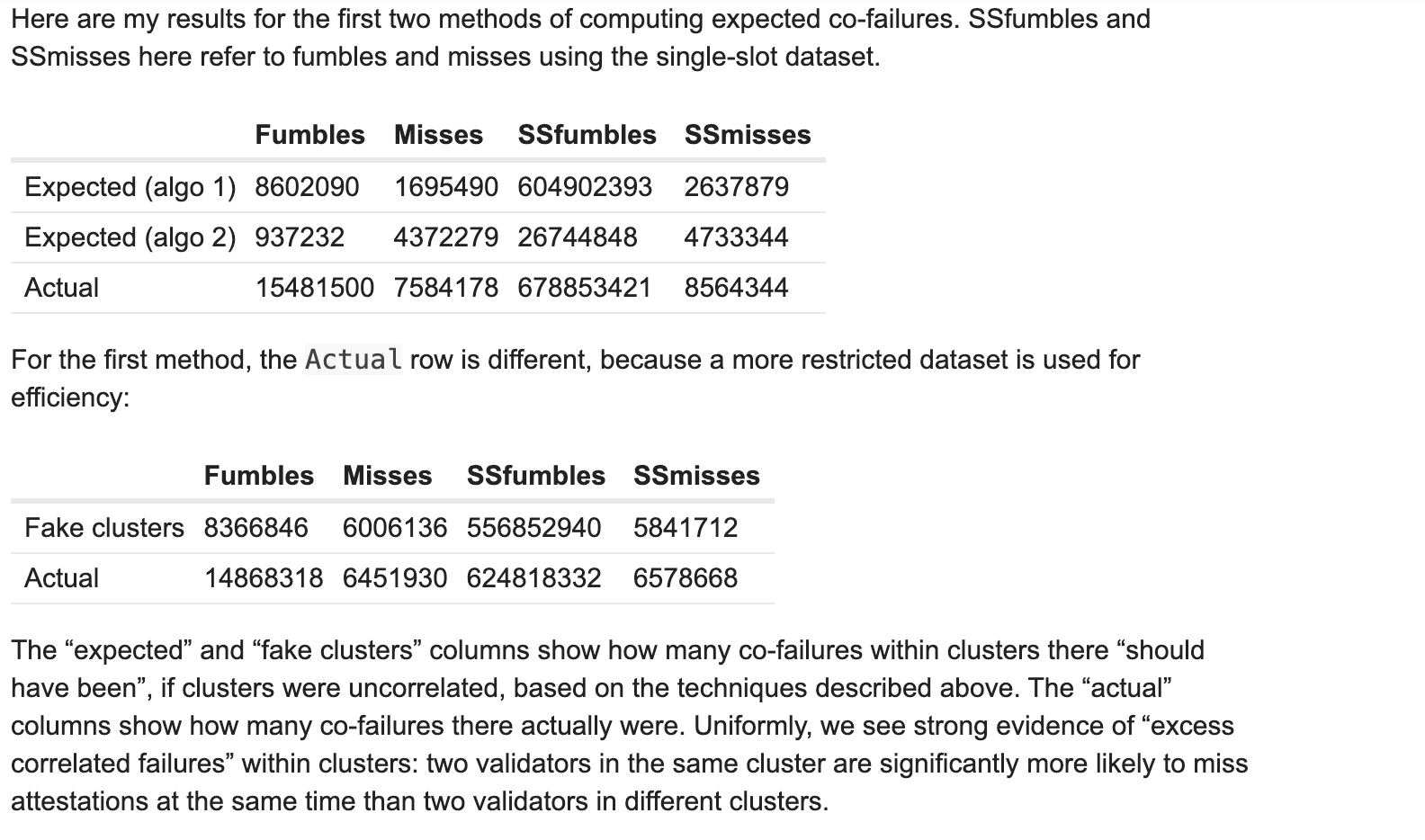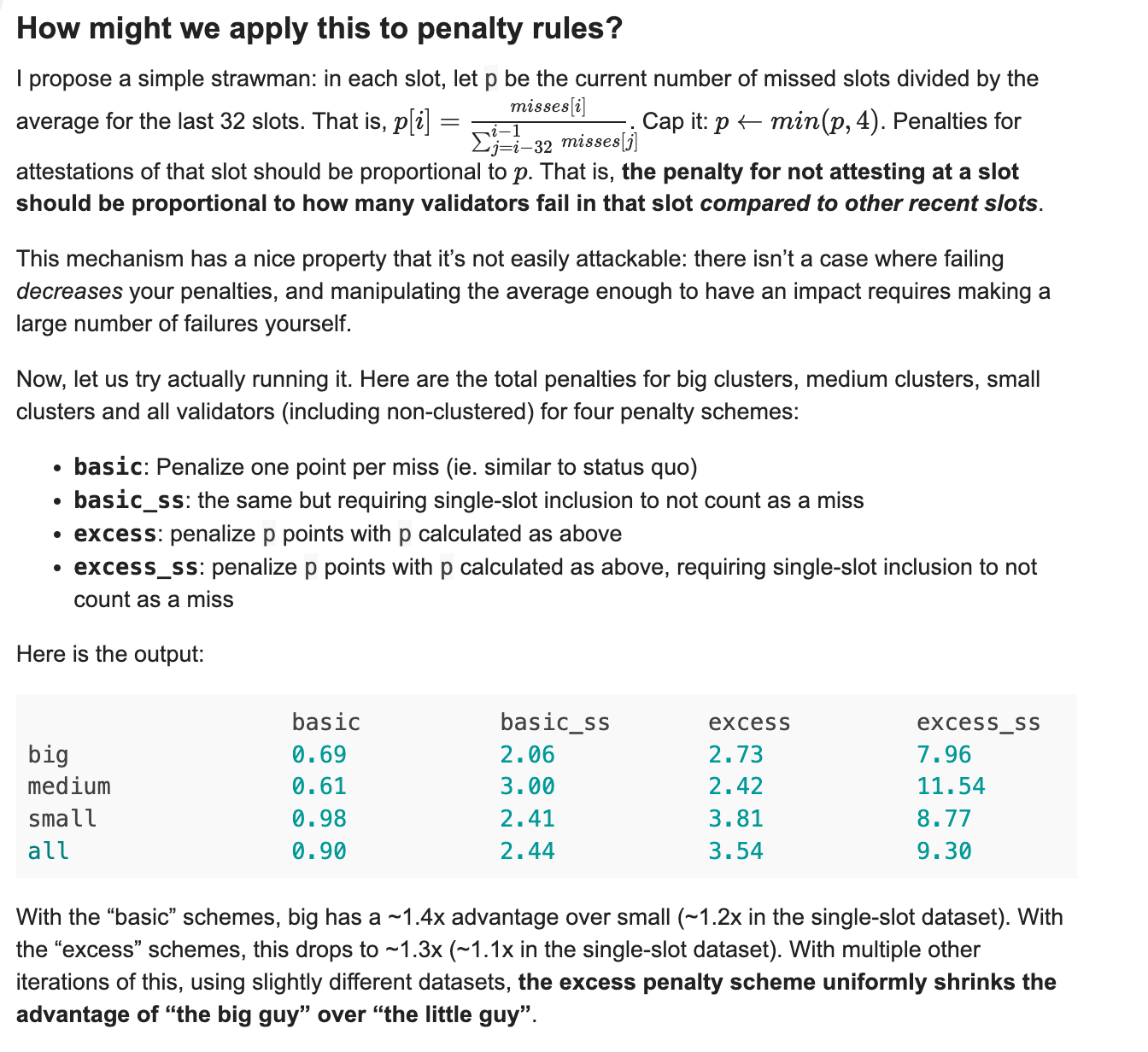V God proposes a new plan: Redesign the PoS penalty mechanism to solve the centralization concerns of Ethereum
- PHPzforward
- 2024-03-27 21:30:43760browse

The centralization risk of Ethereum PoS staking has always been the focus of Vitalik Buterin. At the recent ETHTaipei event, he proposed the concept of “Rainbow Staking”, which aims to increase the participation of independent stakers to mitigate the centralization risk faced by the Ethereum network. This concept aims to make the network more decentralized by promoting wider participation. Vitalik Buterin believes that by encouraging more people to participate in staking, the security and stability of the network can be increased and the reliance on a few large holders can be reduced. This move is expected to make the Ethereum network more decentralized and robust.
Earlier today, Vitalik posted on Farcaster to discuss this issue again: Are validators in the same cluster (such as the same exchange, the same user) more likely to miss the certificate at the same time than unrelated validators? If so, can we adjust rewards to support decentralized staking? Probably yes.

Vitalik proposed to encourage the decentralization of Ethereum through "punishment-related behaviors"
At the same time, Vitalik published an article titled New article on "Strengthening Decentralized Staking: Implementing More Anti-Correlation Incentives". He proposed a new strategy aimed at driving better decentralization by “rewarding non-relevant behavior.”
If a validator behaves inappropriately, whether accidentally or intentionally, they will face appropriate penalties. The severity of this penalty will increase with the number of other validators misbehaving simultaneously, as measured by the total amount of ether they hold. This mechanism is designed to incentivize validators to abide by the rules and ensure the security and stability of the entire system.
To address common failure scenarios, such as the "missed proof" errors occasionally made by validators, Vitalik proposes two clearly defined scenarios: (i) network failure during normal operations, and (ii) Offline or long-term failure.
(i)Fumbles: When the verifier misses the proof in the current epoch, but proved correctly in the previous epoch
(ii)Misses : When a validator misses a proof in the current epoch and also missed a proof in the previous epoch
The probability of a validator in the cluster missing a proof is higher than that of an individual validator
The figure below shows Vitalik calculating the expected and actual results of common failures, which includes data for "fumbles" and "misses", as well as "SSfumbles" and "SSmisses" specifically for a single time period (slot) data set.
The results show that two validators in the same cluster are significantly more likely to miss the proof at the same time than two validators in different clusters. This answers the question Vitalik asked on Farcaster above, so perhaps we can adjust rewards to support decentralized staking.

The penalty is proportional to the number of validators who missed the proof
Next, Vitalik proposed the concept of a penalty rule to apply to decentralized staking scene.
“The “excess” penalty scheme is based on a simple assumption: in each period (slot), if the number of validators who miss the certification exceeds the average value in the past period, then all validators in that period will The punishment should be increased. ”
Vitalik showed the impact of four different penalty schemes on large, medium, small and all validators. The results show that the “excess” penalty scheme can reduce the advantage of large groups over small groups, thus promoting greater fairness. and a decentralized staking system.

This proposal is currently under continuous discussion, but judging from Vitalik’s multiple possible solutions, Ethereum is indeed gradually facing the problems that may be caused by over-centralization of ETH staking. .
The above is the detailed content of V God proposes a new plan: Redesign the PoS penalty mechanism to solve the centralization concerns of Ethereum. For more information, please follow other related articles on the PHP Chinese website!

